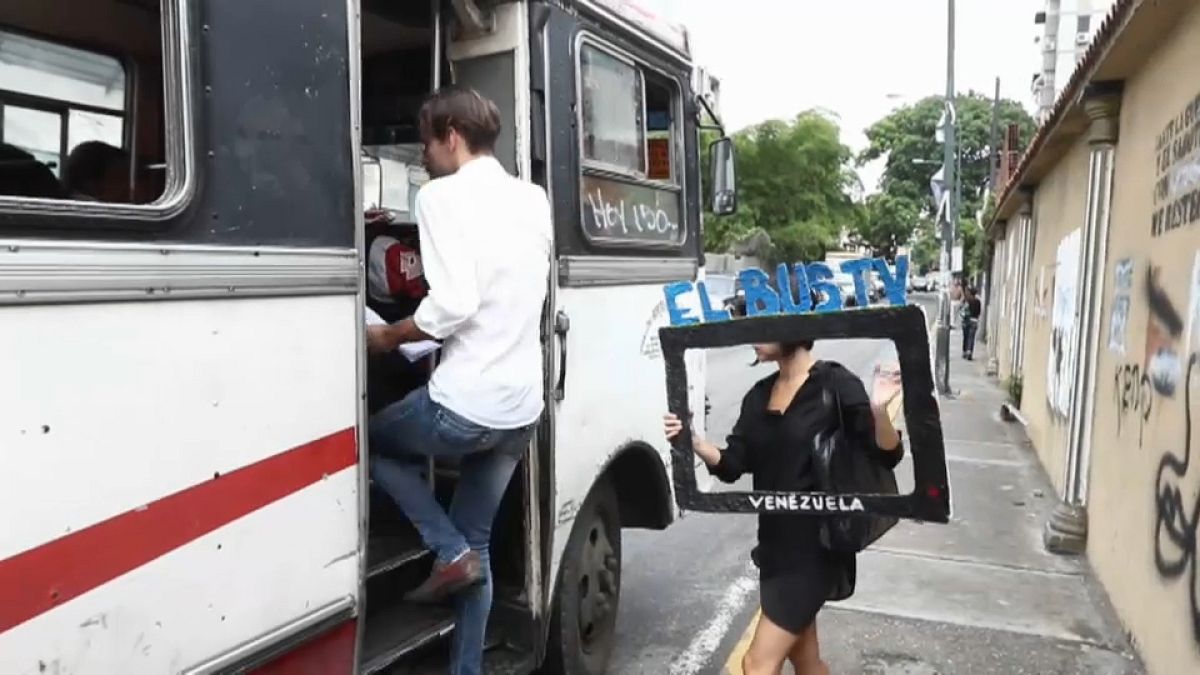In a country where people are wary about where to get their information, a group of activists have a novel approach to transmitting news to the public.
Aiming to deliver a direct message that can’t be distorted, they have taken to reading the news aloud on public transport, framing their faces with a mock-up of a TV screen, made out of wobbly cardboard.
For this is Venezuela where traditional media has become cautious about covering the country’s political strife.
‘Bus TV’ doesn’t want its viewers to be taken for a ride.
The idea came when one of the group realised that many public transport users were ill-informed.
A group of writers and artists in Venezuela are fighting censorship by delivering independent news to bus riders https://t.co/tEeDFucki5
— Wall Street Journal (@WSJ) 8 juin 2017
Despite participating in protests against President Nicolas Maduro’s government, the team says the aim is to produce fact-based newscasts.
“Bus TV was born from the necessity to bring to ordinary people news which is not broadcast in the media,” said one of the newscasters, Maria Gabriela Fernandez.
“As an average citizen, but also as a reporter, it is extremely difficult to get information. There are a lot of rumours on social media, on the streets, so we wanted an alternative to give people another direct source of information.”
Members of the team must not wear political slogans on their clothes, respond to comments from their audience, or attribute blame to either side for the violence that has so far killed 68 people in protests since April.
All Armando Cañizales, 18, thought of was his viola. On a day he joined street protests in Venezuela, he was killed. https://t.co/st0qZE9uohpic.twitter.com/eUD4uh92xb
— New York Times World (@nytimesworld) 10 juin 2017
Focussing on routes that wind through the poorest neighbourhoods in the capital Caracas, the news bulletins talk about the protests and shortages but also report Maduro’s views, along with sports successes and recipes for meals that can be made with cheap, available ingredients.
The model, which harks back to the “town-criers” roots of news broadcasts, is a world away from 21st century digital social media, but its directness may have struck a chord in Venezuela where the initiative is spreading.
Our reporter in Caracas, Alberto de Filippis, said: “In a deep crisis like in Venezuela, even information nowadays represents a very revolutionary act. People from ‘Bus TV’ are trying to get some real information to the people but there is still a long way to go.”
According to a study by media freedom group Instituto Prensa y Sociedad, between 2005 and 2015 more than 100 media organizations were taken off the air or censured in Venezuela.
The government says all the sanctions against the media have been because of violations to media regulation rules such as those prohibiting the incorrect use of violent images.
with Reuters
